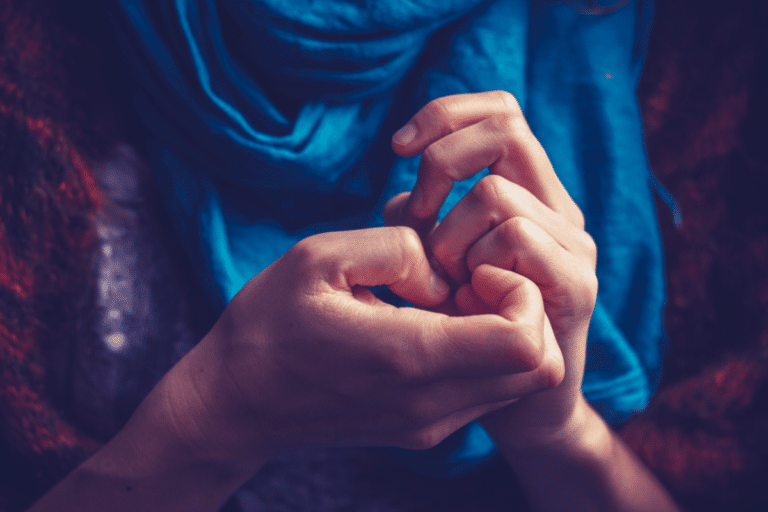People who struggle with mental health issues often struggle with guilt and shame. While these two terms are often used interchangeably, they actually have different meanings. Understanding the difference between guilt vs shame can help you manage your emotions more effectively, so they don’t undermine your recovery.
If you’re struggling with mental health disorders, reach out to Arbor Wellness today at 629-217-2658.
Guilt VS Shame
To appreciate the difference between guilt vs. shame, let’s first take a moment to focus on each of these terms individually:
- Guilt is a negative self-evaluation that results from the knowledge that you have done something illegal, immoral, unethical, or otherwise contrary to the standard that you have set for yourself. People often feel guilty about harming or taking advantage of someone else. Other common sources of guild can include cheating, lying, and stealing.
- Shame is a type of embarrassment that reflects the belief that you are somehow flawed. Often (but by no means always) due to events that are beyond your ability to control. For example, some people are unfortunately ashamed of where they grew up or how they look. Others may feel shame for developing a mental health disorder or a substance abuse problem. Believing that these conditions are indicative of a personal shortcoming.
One way to look at the difference between guilt versus shame. Is that guilt is focused on what you’ve done, while shame is directed at who you are.
Here’s an example: Let’s say you cheated during a card game, and as a result you won money that rightfully should have gone to another player.
- If you feel guilty about what transpired, it indicates that you know what you did is wrong.
- If you feel shame about what happened, it indicates that you believe this action is evidence that you are fundamentally flawed as a person.
Of course, it’s not always easy to discern the difference between guilt versus shame.
In the case of the card game example we just made, many people would likely feel both shame and guilt if they violated the rules of the game. They may also feel guilty for violating their own personal code of conduct just to win money. This would mean that they understand that what they did is unacceptable. Additionally, they feel that their choice reveals a character deficit or other pervasive personal shortcoming.
Guilt, Shame, & Addiction
Addiction and dual diagnosis disorders are another area where line between guilt versus shame is often blurred. People feel ashamed that they have become trapped in the downward spiral of compulsive substance abuse. They feel guilty for how they have acted as a result of their drug dependence.
These emotions, in addition to diminishing their self-esteem and potentially pushing them to increase substance abuse. Can also prevent people from seeking proper treatment. Some may feel too ashamed to admit that they need help. While others may not feel they deserve to live a better life.
Learning how to manage these types of feelings in a healthy manner is one of the many benefits of entering a Dual Diagnosis treatment program. During therapy, patients can identify the root causes of their low self-regard and learn how to treat themselves more compassionately. This can be a vital development on the path toward successful, long-term recovery.
Managing Guilt, Shame, & Other Difficult Emotions
Here are a few therapies and practices that can help you manage shame, guilt, and other self-critical feelings:
- Mindfulness: This practice encourages you to be aware of your inner thoughts and the events that are occurring around you without judging or reacting to them. It reminds you that you can acknowledge and experience emotions without acting on them or being controlled by them. When you do act, you do so deliberately and intentionally after considering both the justification and potential effects of what you are about to do.
- Cognitive behavioral therapy (CBT): This is a short-term, goal-oriented form of psychotherapy. CBT therapy is grounded in the belief that many of life’s problems are the result of automatic negative thoughts and other problematic ways of thinking. During CBT sessions, you will learn to replace maladaptive thought and behavior patterns with healthier ways of thinking and acting.
- Dialectical behavior therapy (DBT): This approach focuses on helping patients develop and refine their skills. It targets areas such as mindfulness, distress tolerance, emotion regulation, and interpersonal effectiveness.
- Journaling: The simple act of recording your thoughts, emotions, and activities can help you realize the degree to which misplaced shame and guilt have been negatively impacting your life. The perspective that you gain through journaling can also help you process your experiences. As well as gain a new perspective on your thoughts, actions, and reactions. This, in turn, may lessen any guilt or shame that you are continuing to feel.
Find Comprehensive Mental Health Treatment in Nashville
If you’ve been struggling with an addiction to alcohol or other drugs, please don’t let shame, guilt, or other negative emotions stop you from getting the help you need.
At Arbor Wellness, we understand that these feelings are common among people who are entering treatment for addiction and mental health disorders. We are committed to helping each patient realize that they are unique and valuable individuals. Who are worthy of care, compassion, and a chance to live a healthier life in recovery.
Your experiences with dual diagnosis disorders don’t define you as a person. Nor should they prevent you from attaining the future you deserve. At our mental health treatment in Nashville, Tennessee. You can rediscover your innate strengths and talents and reconnect with the best version of yourself. To learn more or to schedule a free assessment, please visit our Admissions page or call us today.
























